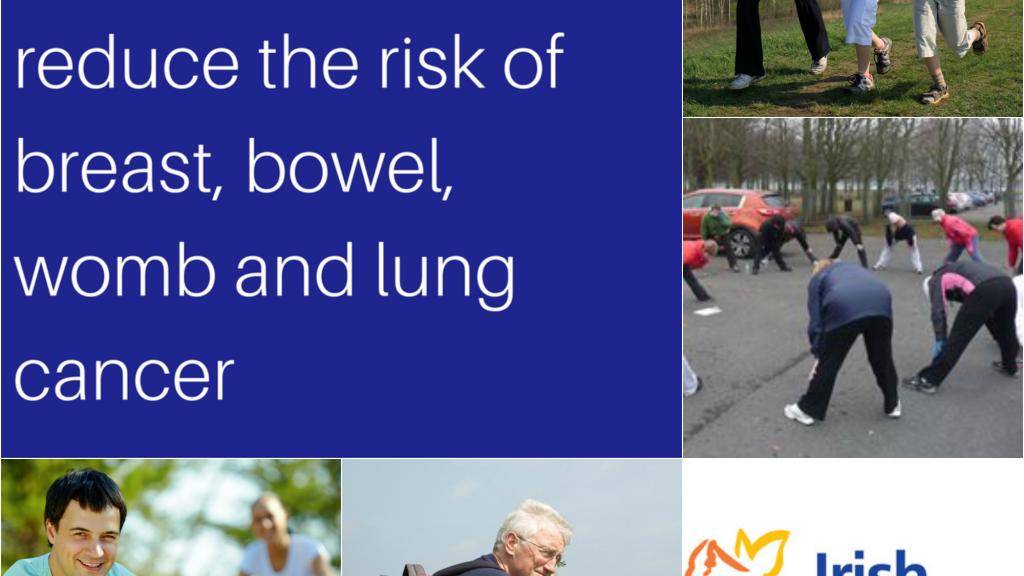
Why keeping active counts in the war against cancer
[[{"type":"media","view_mode":"media_large","fid":"6417","attributes":{"alt":"","class":"media-image","height":"199","width":"480"}}]]
Exercise can considerably reduce your risk of developing several cancers and significantly aid patients in their battle with the disease, a leading Irish researcher in the field has told the public.
The Irish Cancer Society event Decoding Cancer: Is Exercise the Secret Weapon in the War against Cancer? saw Dr Jane Walsh, a leading Health Psychologist from NUI Galway, outline how even moderate physical activity can greatly can cut the risk of developing certain cancers and benefit a patient undergoing cancer treatment. The event took place in the Science Gallery, Pearse Street, Dublin.
Cancer is the cause of one in four deaths in Ireland. Scientific evidence is increasingly pointing to the benefits of physical activity in beating the disease and potentially saving lives.
There is also clear evidence to tell us that physical activity and exercise can reduce your risk of developing breast, bowel and womb cancer. It may also help prevent lung cancer. *
Speaking ahead of the event, Dr Walsh said:
“We all know the scientific evidence behind why exercise reduces the risk of illnesses like heart disease and diabetes, but less well known is its impact on both preventing cancer and improving survival rates and quality of life in patients with cancer.
“Four out of ten cancers are preventable, and with more than 40,000 people in Ireland expected to be diagnosed with cancer this year, anything we can do to stop this epidemic should be widely known.”
Dr Walsh is Director and Founder of the mHealth Research Group, an internationally-recognised centre for research on mobile technology and health. She is also Co-Director of the Health and Wellbeing Cluster in the Whitaker Institute in NUI Galway.
Dr Walsh’s research interests include the use of new technologies to drive interventions to change health behaviours (mHealth) as well as encouraging health behaviour change through the promotion of preventative health behaviours.
Research has shown that a supervised exercise intervention used in cancer patients receiving treatment can reduce fatigue and improve vitality, aerobic capacity, muscular strength and emotional wellbeing.
Studies have also found that women who exercise moderately (the equivalent of walking three to five hours per week at an average pace) after a diagnosis of breast cancer have improved survival rates compared with more sedentary women.
This event was held as part of the Irish Cancer Society’s Decoding Cancer series of public talks, which aims to dispel some of the myths around cancer and explore the many advances being made through research in prevention, early detection, treatment, and survivors’ quality of life.
Dr Robert O’Connor, Head of Research at the Irish Cancer Society, added:
“With six out of ten cancer patients surviving for five years or more, modern cancer research is increasingly focussing on all aspects of cancer – from prevention to early detection, treatment, and improving quality of life for survivors. That research has delivered significant improvement in killing tumour cells so it is now timely to look more closely at ways to improve the focus on the patient at the same time and we are very grateful to Dr Walsh for contributing her research experience on exercise to our series of public talks.
“The Irish Cancer Society is proud to invest in the work of high quality cancer researchers across the country. Because of the generous support of the public, the Society is the leading voluntary funder of cancer research in Ireland, spending €20 million on research projects and initiatives since 2010, all made possible by donations we receive.”
This talk was brought to you with the support of the Association of European Cancer Leagues
